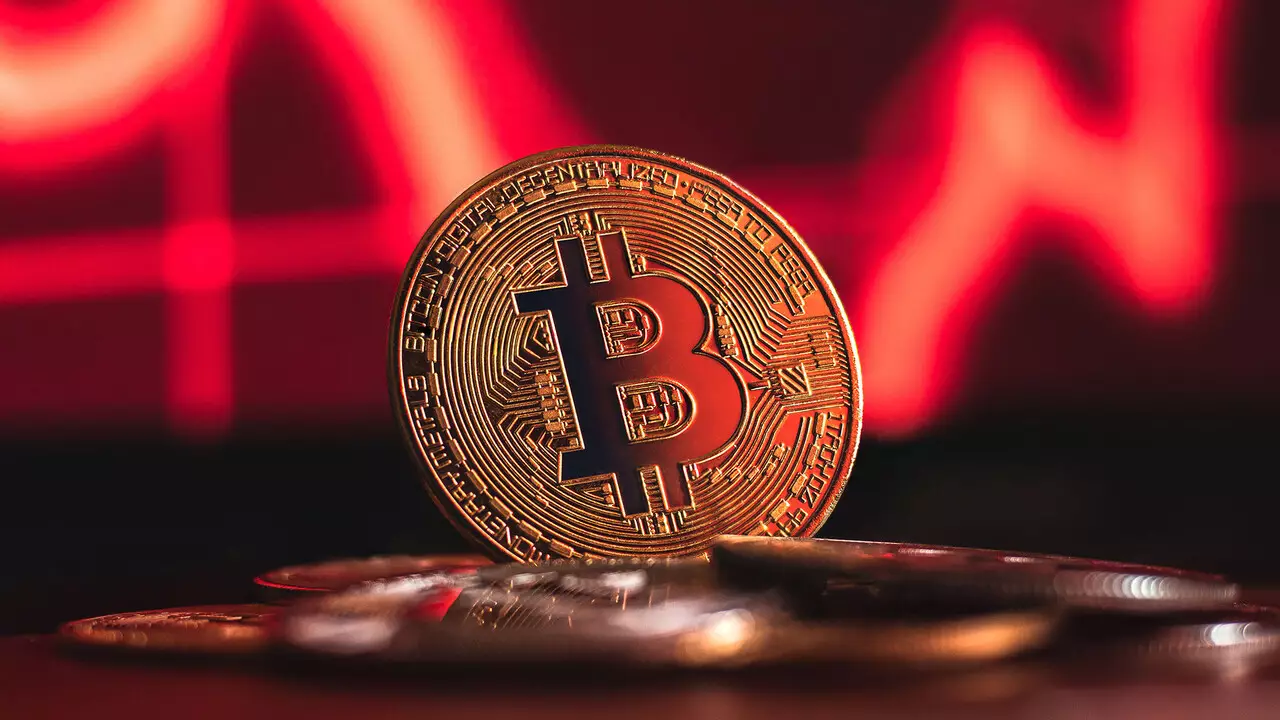The name Mt. Gox has become synonymous with the pitfalls of unregulated cryptocurrency trading. As the first major cryptocurrency exchange, its collapse in 2014 sent shockwaves throughout the industry. Now, once again, this notorious platform is back in the headlines, with recent reports revealing that it has transferred an astonishing sum of over $1 billion in Bitcoin. The sheer scale of these transactions warrants scrutiny, not only due to the amount involved but also because they signal a potential resurgence of a platform that one could argue represents the dark alleys of crypto speculation.
One might wonder, why should we care about the transgressions of a defunct exchange eight years after its fall from grace? The answer isn’t just historical; Mt. Gox continues to play a pivotal role in the evolving narrative of cryptocurrency regulation and market stability. Arkham Intelligence’s revelation that the exchange moved over 11,000 Bitcoins in March alone makes it impossible to ignore the potential implications for investors and regulators alike.
Implications of Massive Transfers
The financial ecosystem surrounding cryptocurrencies is already precarious enough without adding the chaos of large, seemingly inexplicable moves of assets. Although Mt. Gox is currently under court-ordered rehabilitation, the act of transferring substantial amounts of Bitcoin raises questions about the intentions behind such moves. Are these simply technical maneuvers aimed at restructuring or are they indicative of something more alarming, possibly involving retribution or even hidden agendas?
Mt. Gox’s operational legacy is infamous; it lost around 850,000 Bitcoins during its previous collapse, creating a lengthy legal saga that remains unresolved for many creditors. As it stands, the exchange still retains control of over 35,000 Bitcoins worth in excess of $3 billion. This juxtaposition of lost assets and on-chain liquidity certainly leads one to question how the cryptocurrency community views the exchange. For many, it represents a lingering risk, reinvigorating distrust towards centralized exchanges and calling into question the very efficacy of existing regulatory frameworks.
Ethical Questions and Market Risks
When analyzing such movements of cryptocurrency, one cannot ignore the ethical implications. Cryptocurrencies were initially marketed as being decentralized and liberated from traditional financial constraints. However, situations like those arising from Mt. Gox’s actions seem to underscore the hypocrisy that often exists within the crypto environment. An exchange that once controlled a staggering percentage of the market is now playing with billions, while many of its former customers are still grappling with financial repercussions.
This becomes especially troubling when you consider that newer investors or casual traders might not fully appreciate the exchange’s disreputable past. The behavior exhibited by Mt. Gox can sow confusion and anxiety amongst retail investors, who may be entirely disconnected from the company’s tumultuous history. The act of sending and receiving such massive amounts of cryptocurrency could potentially flood the market with volatility, making it a precarious time for market participants and regulators.
The Need for Enhanced Regulation
In the wake of these developments, there’s a clarion call for tighter regulation within the cryptocurrency realm. The unregulated nature of the market has long been a green light for bad actors. As Mt. Gox stirs back to life with its massive Bitcoin transactions, the necessity for transparent regulations becomes clearer than ever. If we are to protect investors and ensure that such large-scale movements don’t disrupt a fragile market, policymakers must act swiftly to create a framework that not only safeguards investor interests but also imposes punitive measures on malfeasance.
Moreover, relying on limited data representations cannot be the sole tactic employed to scrutinize such exchanges; a broader, systemic view is needed. Effective legislation must address the fundamental structures that allow platforms like Mt. Gox to operate without sufficient accountability. These platforms should be compelled to meet stringent operational standards, thus encouraging a culture of transparency and trust among crypto enthusiasts.
The spectacle surrounding Mt. Gox’s recent Bitcoin movements serves as a poignant reminder: as cryptocurrency technologies evolve, so must the governance that oversees them. Without robust regulatory frameworks, the same mistakes may repeat endlessly, leaving hapless investors to navigate the high stakes of an unregulated marketplace. While optimism for cryptocurrency remains, a grounded approach demands that we remain skeptical of entities like Mt. Gox, lest we allow history to repeat itself once again.

